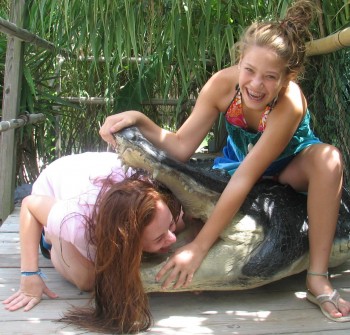Note to Readers: Teen years are stressful, with friendships ranking high on a teens lists of concerns. Stressful friendships are toxic to the entire family. One way to prevent your teenager from having negative, energy sucking, drama causing relationships, is to have an honest look at our own friendships. My formula for a stress free friendship is EEE. Equal Energy Exchange. When I read the following steps from Talking Teenage, I knew I had to share!
by Talking Teenage
Teens are hard-pressed to know when they should phase out a friendship. As parents, we must admit that we generally want our kids to phase out anyone who hurts their feelings even slightly. Well, we need to meet somewhere in the middle.
 STEP#1- Good Friendships are characterized by:
STEP#1- Good Friendships are characterized by:
- Reciprocity and mutuality.
- Support and understanding.
- Characterized mostly by fun and pleasure.
- A sense of INCLUSION-a good friend does not encourage you to give up your other friends and or family.
STEP#2 -Toxic Friendships are characterized by:
- A draining of energy. Beware of “energy vampires.”
- A lack of reciprocity. There is no sense of give and take.
- One person redirecting all conversations to and about themselves.
- They deflate you. They don’t share your joys and perhaps even enjoy your failures.
- They put you down.
- Possessiveness and jealousy.
- Competitive and dismissive behavior.
- They gossip about you.
- They encourage you to get involved in destructive activities.
So, parents, if you see these things happening within your teens’ friendships we do not recommend that you coerce your teens into ending the friendships. If they do, however, ask for your input we recommend that you calmly and non-judgmentally suggest that they consider phasing out rather than dramatically ending these relationships. Your teens need to preserve their reputations. Encourage them to behave in a gracious manner so that they are not seen as being mean. They should keep in mind that they may continue to travel in the same social circles. When phasing out friendships there should be no leaking of secrets and information that was learned during the friendship. You do not want your teens to give the impression that they can’t be trusted.
And by all means, teach and model gracious behavior in difficult situations. Reputations need to be well-protected!
Jennifer Powell-Lunder is a licensed clinical child psychologist specializing in work with children, adolescents, and their families. She is co-author of the book Teenage as a Second Language: A Parent’s Guide to Becoming Bilingual. She is the co-creator of www.Talking Teenage.com an informational website for the parents of teens.
Barbara Greenberg, Ph.D., is a licensed clinical psychologist whose work focuses almost exclusively on the treatment of adolescents and their families. She is co-author of the book Teenage as a Second Language: A Parent’s Guide to Becoming Bilingual and co-creator of www.Talking Teenage.com
Teens with high self-value increase their chances of having a healthy friendship. IndigoTeen Dreams CD introduces teens to the self-esteem building technique of positive statements.